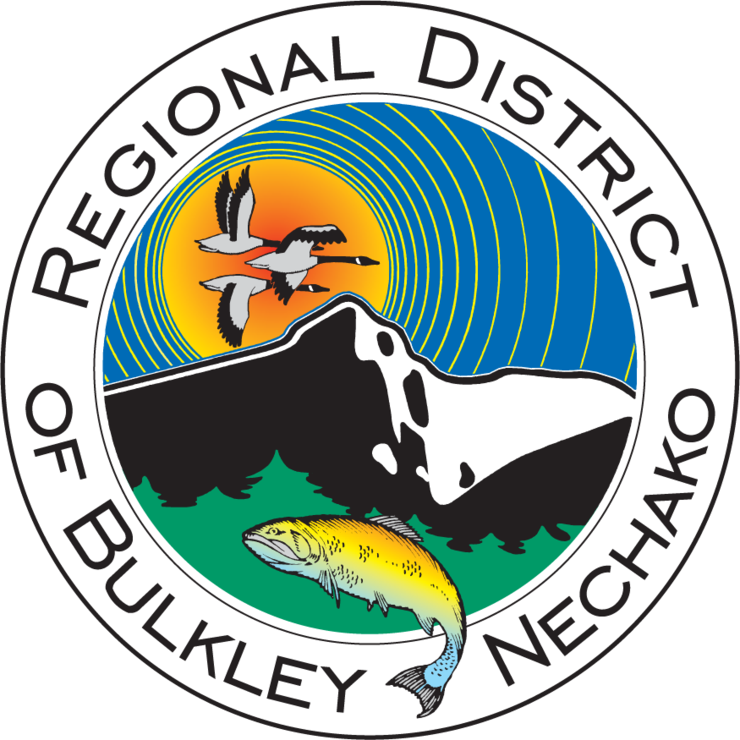Fort Fraser water and sewer works are operated by the Environmental Services Department and the Fort Fraser Local Commission. The community's water and sewer systems are covered under permits issued by Northern Health and the Ministry of Environment respectively.

The Environmental Services Department works in conjunction with the Fort Fraser Local Commission, Northern Health, and the Ministry of Environment and Climate Change to manage and operate the drinking water and wastewater (sewage) services for the community of Fort Fraser. The water system includes two ground water wells, pump station, reservoir and distribution network while the sewage treatment system includes a series of three lagoons which act to filter, treat and polish the effluent prior to discharge to the Nechako River.
PUBLIC NOTICE: Introduction of Chlorine Disinfection to Our Water System
Register here for Bulkley-Nechako Voyent Alert! to receive notices directly.
As of June 2025, chlorine is being used in the Fort Fraser water system as a protective disinfectant. This step is being taken in compliance with the BC Drinking Water Protection Regulation (DWPR) and under the guidance of the Ministry of Health.
Why Chlorine? Why Now?
Chlorine is a widely used and regulated method of disinfecting water. It helps eliminate harmful microorganisms such as bacteria and viruses and provides ongoing protection as water travels through the distribution system. It provides ongoing protection by neutralizing any harmful bacteria or viruses that could enter the system unexpectedly — such as after a heavy rainfall, a main break, cross-connection breach, or unauthorized access. This will also provide protection during changing environmental conditions.
What You Might Notice:
As we begin chlorination, you may notice:
- A slight chlorine taste or smell, especially in the first few weeks as we level out the system.
- Minor temporary changes in water pressure or clarity as lines are flushed. Run taps until this clears.
These are normal and do not pose a health risk. Your water will continue to meet or exceed all provincial drinking water safety standards.
Monitoring and Reporting:
Our trained water operators will:
- Continuously test and adjust chlorine levels to ensure they remain within safe and approved limits.
- Sample water regularly throughout the system.
- Report any issues to the regional Drinking Water Officer, as required by regulation. The Northern Health contact number is via Public Health Protection at 250-565-2150
The RDBN is working closely with Northern Health’s Drinking water officers to monitor the process of integrating chlorine disinfection into Fort Fraser’s drinking water. Please note that chlorination is a common method for disinfecting water and killing harmful microorganisms, and it also provides a residual disinfectant to protect water within the distribution system. Regular weekly monitoring of chlorine residual levels is crucial to ensure adequate disinfection and safety of the communities drinking water. We are required to obtain and maintain a minimum residual disinfectant in the water distribution system, providing ongoing protection against regrowth of bacteria and other pathogens.
When users taste and smell ‘bleachy’ odors, it means that chlorine is still reacting with potentially harmful organics in the water system. Turning down the dose may minimize the odour, but then the chlorine level is not high enough for adequate disinfection. Users will experience fluctuations in this taste and smell until the levels are balanced out and adequate treatment is taking place. The RDBN may need to periodically flush the system lines, and during these events users might experience a flush of dirty water or air. When this happens, run the water from your taps until it is clear.
This is part of our ongoing responsibility to provide clean, safe, and trustworthy drinking water for every household. Thank you for your patience and support as we introduce this important step toward protecting our community’s health — now and into the future.
If you have questions about the process, please call 1-800-320-3339.
Fort Fraser Water Distribution Schedule
Operations Phasing Sequence Map
Please be advised the Fort Fraser Water Distribution Schedule and Operations Phasing Sequence Map are subject to change upon the discretion of the RDBN with consultation of Infracon (LNB) and TRUE Consulting based on unforeseen circumstances.
If you have any questions regarding the operation or management of the Fort Fraser drinking water or wastewater systems, please contact the Environmental Services department at the Regional District of Bulkley-Nechako.
Public Health Protection: Drinking Water Inspection Report
Water Conservation
During dry periods, we are ask that all residents reduce the amount of water they use by following the below guidelines.
The sprinkling of lawns is restricted to every other day.
- Odd numbered houses may water on odd days ONLY.
- Even numbered houses may water on even days ONLY.
- Lawns MUST NOT be watered between the hours of 10:00 am and 5:00 pm.
- Lawns MUST NOT be watered for more than two hours per occasion.
Residents are also asked to limit the watering of hard surfaces (driveways, etc.), and to use an automatic shutoff nozzle when cleaning cars, trucks, RV’s and boats.
If you are looking for tips on water conservation click here.
